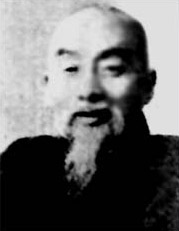Views
m |
m |
||
| Line 15: | Line 15: | ||
==Biography== | ==Biography== | ||
| - | Dīng studied many subjects as a child, In [[1895]], he tested into the Nánqīng Academy 南菁書院 in Jiāngyīn 江陰, where one of his classmates was Jiǎng Wéiqiáo [[蔣維喬]]. In [[1896]] he became a scholarship student in training for the civil service examinations (shēngyuán 生員) in Wúxí 無錫. He would go on to study in Dongwu University 東吳大學 in Sūzhōu 蘇州. He also studied chemistry in Shànghǎi 上海, Japanese at the Fuzhou Japanese School 東文學堂 in Fúzhōu 福州, and medicine from Zhào Yuányì 趙元益. He taught in the School of Translation Studies 譯學館<ref>Formerly the School of Combined Learning 同文館, established in [[1862]]</ref> at Imperial Capital University 京師大學堂<ref>Established in Běijīng [[北京]] in [[1898]], later to become Beijing University</ref>, and in [[1910]] he traveled to Japan to research medicine there, later returning to Shànghǎi where he practiced medicine | + | Dīng studied many subjects as a child, In [[1895]], he tested into the Nánqīng Academy 南菁書院 in Jiāngyīn 江陰, where one of his classmates was Jiǎng Wéiqiáo [[蔣維喬]]. In [[1896]] he became a scholarship student in training for the civil service examinations (shēngyuán 生員) in Wúxí 無錫. He would go on to study in Dongwu University 東吳大學 in Sūzhōu 蘇州. He also studied chemistry in Shànghǎi 上海, Japanese at the Fuzhou Japanese School 東文學堂 in Fúzhōu 福州, and medicine from Zhào Yuányì 趙元益. He taught in the School of Translation Studies 譯學館<ref>Formerly the School of Combined Learning 同文館, established in [[1862]]</ref> at Imperial Capital University 京師大學堂<ref>Established in Běijīng [[北京]] in [[1898]], later to become Beijing University</ref>, and in [[1910]] he traveled to Japan to research medicine there, later returning to Shànghǎi where he practiced medicine. In [[1908]] he established the Medical Press [[醫學書局]] in Shànghǎi. |
From [[1914]] he started to become interested in Buddhism. During his lifetime he wrote and published on many subjects, including philology, textual studies, numismatics, medicine, Buddhism, textual collation, and so on. He is said to have spent over ten years translating his ''Great Dictionary of Buddhism'' [[佛學大辭典]], which was published in [[1922]]. He donated several tens of thousands of books and printed materials to Shanghai University 上海大學, Beijing University 北京大學, Wúxí University 無錫大學, and Aurora University 震旦大學. He also donated his house in Wúxí to the Wúxí Buddhist Association [[無錫佛學會]]. | From [[1914]] he started to become interested in Buddhism. During his lifetime he wrote and published on many subjects, including philology, textual studies, numismatics, medicine, Buddhism, textual collation, and so on. He is said to have spent over ten years translating his ''Great Dictionary of Buddhism'' [[佛學大辭典]], which was published in [[1922]]. He donated several tens of thousands of books and printed materials to Shanghai University 上海大學, Beijing University 北京大學, Wúxí University 無錫大學, and Aurora University 震旦大學. He also donated his house in Wúxí to the Wúxí Buddhist Association [[無錫佛學會]]. | ||
Revision as of 20:23, 14 July 2010
Dīng Fúbǎo 丁福保 (1874-1952)
|
|
Courtesy name 字: Zhòngyòu 仲祐 Style name 號: Chóuyǐn jūshì 疇隱居士 |
Notable Associates:
|
|
Dīng Fúbǎo 丁福保 (1874-1952) was a writer and publisher, best known for his Great Dictionary of Buddhism 佛學大辭典 published in 1922, a translation of Bukkyō daijiten 仏教大辞典 by Oda Tokunō 織田徳能.
Contents |
Biography
Dīng studied many subjects as a child, In 1895, he tested into the Nánqīng Academy 南菁書院 in Jiāngyīn 江陰, where one of his classmates was Jiǎng Wéiqiáo 蔣維喬. In 1896 he became a scholarship student in training for the civil service examinations (shēngyuán 生員) in Wúxí 無錫. He would go on to study in Dongwu University 東吳大學 in Sūzhōu 蘇州. He also studied chemistry in Shànghǎi 上海, Japanese at the Fuzhou Japanese School 東文學堂 in Fúzhōu 福州, and medicine from Zhào Yuányì 趙元益. He taught in the School of Translation Studies 譯學館[1] at Imperial Capital University 京師大學堂[2], and in 1910 he traveled to Japan to research medicine there, later returning to Shànghǎi where he practiced medicine. In 1908 he established the Medical Press 醫學書局 in Shànghǎi.
From 1914 he started to become interested in Buddhism. During his lifetime he wrote and published on many subjects, including philology, textual studies, numismatics, medicine, Buddhism, textual collation, and so on. He is said to have spent over ten years translating his Great Dictionary of Buddhism 佛學大辭典, which was published in 1922. He donated several tens of thousands of books and printed materials to Shanghai University 上海大學, Beijing University 北京大學, Wúxí University 無錫大學, and Aurora University 震旦大學. He also donated his house in Wúxí to the Wúxí Buddhist Association 無錫佛學會.
Dīng sat on the board of directors for Shanghai Buddhist Books 上海佛學書局, the most important Buddhist publishing house in China in the first half of the 20th century.
Important Works
- 佛學大辭典
- 一切經音義提要
- 佛經精華錄箋注
- 六祖壇經箋注
- 心經箋注
- 六道輪迴錄
- 佛學指南
- 佛學起信論
Notes
- ↑ Formerly the School of Combined Learning 同文館, established in 1862
- ↑ Established in Běijīng 北京 in 1898, later to become Beijing University
References
- http://www.wxzx.gov.cn/Info.aspx?ModelId=1&Id=2943
- Shì Dōngchū 釋東初. Zhōngguó Fójiào jìndài shǐ 中國佛教近代史 (A History of Early Contemporary Chinese Buddhism), in Dōngchū lǎorén quánjí 東初老人全集 (Complete Collection of Old Man Dongchu), vols. 1-2. Taipei: Dongchu, 1974. Pp. 2.647-650.
- Yú Língbō 于凌波. Zhōngguó jìnxiàndài fójiào rénwù zhì 中國近現代佛教人物志. Beijing: Zongjiao wenhua chubanshe, 1995. Pp. 423-431.
